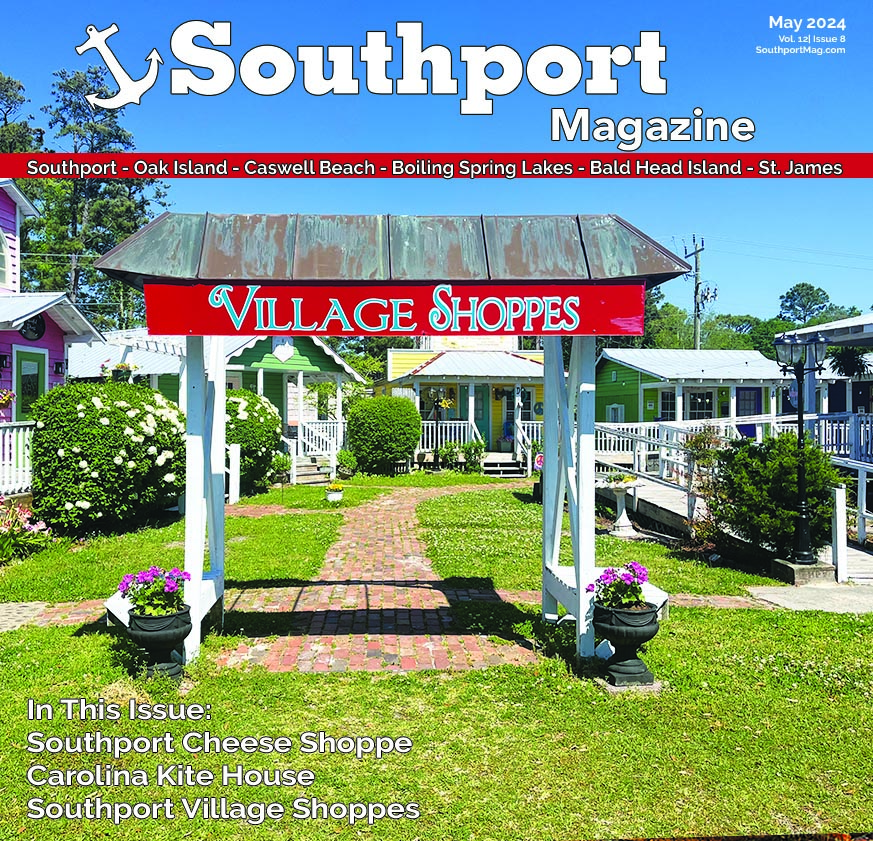Rising Angel

Who: Jeanne Jolly, singer/songwriter
When: Friday, April 19th • 7:30 p.m.
Where: Playhouse 211
4320-100 Southport-Supply Rd., St. James
Cost: $20/advance, $25/at the door
Info: (910) 200-7785
www.playhouse211.com

Jeanne Jolly studied opera before becoming a country/folk/pop singer and songwriter. Photo by Celeste McLean Young
The Raleigh, NC native has performed in such venues as Carnegie Hall, and her first full-length album, “Angels,” debuted on the top 15 for the iTunes singer/songwriter chart. She has opened for acts like Sam Bush, Maura O’Connell and Chuck Mead. Such success is no surprise once giving “Angels” a listen.
Her influences—like Alison Krauss, The Judds, Tammy Wynette—shine through in her folk-style ballads, yet her classical schooling lends hints of jazz and bossa nova to a few tunes as well. Jolly’s tone is exceptionally warm and clear, the gift of many years’ diligence in opera. Not one of the songs on “Angels” should be considered filler. Every lyric is bona fide. Every verse is something she’s felt.
When Jolly was younger, she was fearful of sharing her songwriting. Understandably, it was her personal poetry, meant to alleviate heartache or to help the butterflies of newly found love soar just a bit higher. There is comfort in performing other composers’ works—one can hide behind someone else’s words.
However, in 2009 her mother—an intense supporter of Jolly’s music, attending every performance—passed away from ovarian cancer. Jolly moved home in her mother’s final weeks, and though sadness ruled her life, she was able to focus the pain into her music. She dove deeper into learning the guitar, and she finally opened up to sharing her songs.
It began with a ballad about her mom, which she sang for her dad. That bravery led to the release of her 2010 EP, “Falling In Carolina.” Since, it seems the memory of her mother continues to fuel the artist’s fire. Proceeds from purchases of Jolly’s track “Hallelujah” on her website, www.jeannejolly.com, are donated to the Ovarian Cancer Research Fund.
Southport Magazine spoke with the singer/songwriter in anticipation of her upcoming performance at Playhouse 211. On tour promoting “Angels,” she’ll make the stop in St. James on Friday, April 19th.
Southport Magazine (SM): I understand you used to sing casually at home with your mom. What led you to the grandeur of opera?
Jeanne Jolly (JJ): I’ve actually always wanted to be a professional singer. Mom and I did enjoy harmonizing to The Judds and singing along to Aretha [Franklin] in the car, but I’ve always taken it seriously as a career. I studied classically (opera) because it was a challenge and it feels good to sing it freely. I fell in love with some of the repertoire.
Deep down, even while studying at NEC, I wanted to be doing what I’m doing now but just didn’t have the mindset for it back then or the courage or inspiration to dive in and share my own music. I’ve always loved to sing good songs—classical, jazz, country, folk, blues, or bluegrass. A good song is a good song. I really don’t have the discipline for opera or the skin for it. I still listen to my favorites from time to time, like Renée Fleming or Elly Ameling.
SM: So, you have your masters in vocal performance, yet you were shy to share your own songwriting at first. Can you talk about performing someone else’s compositions, and then any liberating feelings (or otherwise) with performing your own songs?
JJ: It’s very fulfilling when you know that a song you’ve written touches someone else. The mutual exchange is such an inspiration and a blessing. After performing in different platforms and different genres over the years, I made the decision that I had to give songwriting a go. It is very different to perform your own songs. I still tip my hat to songwriters that inspire me and arrange covers. As long as I can relate to the song in some way, I can put my whole heart into it. When I sing my own songs, I’m singing my heart basically.
SM: How did living in Boston and LA have an effect on your music?
JJ: I met so many talented people at NEC and continued to meet more creative folks out in Los Angeles. During my time in Boston, I went to a ton of recitals in Jordan Hall, the oldest recital hall in the country. They were free for students and there was a concert 365 days a year. I took it for granted but tried to go as much as I could.
The acoustics in Jordan Hall are amazingly clear—especially for voice and strings. I really fell in love with vocal chamber music and early music ensembles during that time. I also loved performing in that hall and got to sing under wonderful conductors such as Simon Carrington of the King’s Singers and Benjamin Zander of the Boston Philharmonic.
These experiences forced me to dig into the repertoire and own it in a way I’d never done before. There was no squeaking by on natural talent—a lot of fine tuning—and I really enjoyed that part of my experience there. The city itself is beautiful but cold. I think the move to Los Angeles from Boston was partly to warm my bones. When I moved to LA, I had a strong interest in music for film and TV. I worked in a post-production facility and a TV/film music library and learned a lot about contracts, publishing splits, and, of course, the underbelly of it all. I had a reputation around the office for being the “in-house singer.” I recorded jingles and TV/film spots—often times directed to imitate a certain singer which I totally loved doing.
My biggest gig while in LA was singing with Chris Botti. This added a lot to my performance and understanding of what being an entertainer is. There are musicians and performers, and then there are musicians who can entertain. It was inspiring to get inside of that night after night and to sing in venues I’d dreamed of as a little girl. So, I guess, Boston and LA both added new colors to my life as a singer that have stuck with me. I also had to figure out what I liked and what I didn’t.
SM: Tell me about the members of your band and why you all work so well together.
JJ: I love my band! I perform in a few different set-ups depending on the tour and the rooms. We’ve really been working a lot as a trio lately. The trio is made up of myself on vocals, guitar, and baritone ukelele; Chris Boerner, producer of “Angels,” on vocals and eight-string guitar (which is basically bass and guitar at the same time—I do not understand how he does this); and Nick Baglio on drums, keys, and vocals. Yes, he plays keys and drums/percussion at the same time—not on every song, but the fact that he does it at all is pretty amazing.
We worked this up to see what kind of sounds we could build with just three people. They both are wonderful to work with and travel with. We laugh constantly on the road. Both of them blow me away, every show, with their musicianship and sensitivity to the music.
My favorite pedal steel player in the world is Allyn Love and I’m so lucky to have him onstage with me! He sings with his instrument, and that is why I love singing with him so much. There is a great chemistry there. He is on both of my records and I love his feel. He is an absolute joy to be around as well. When we are able to do bigger shows, we have an incredible bassist E. Scott Warren who always shows up to rehearsal with a ridiculously warm sounding bass, playing with so much ease. I’m lucky to have all these guys on board. They are good people, super talented musicians, and they all know how to leave space in the music when it’s needed.
SM: What’s your songwriting process? Do words and melodies come to you at the same time, or is the tune there after the poetry?
JJ: I don’t have a process yet. I wish I did. Usually a melody with loose lyrics comes to me first, and then I find the right chords to go along with what I’m hearing. Sometimes it’s just syllables and melodies, and then I refer to my journal that is full of random thoughts that could possibly turn into a song. Sometimes I’m inspired by an event and I feel obligated to write about it. Before smart phones, I had a lot of receipts and napkins with dribble floating around in my car. Now, I can just record it with my voice memo app. A lot of songs start while I’m driving alone and sometimes when I’m cooking, and I’ve learned to record it right away before it’s gone.
SM: Other than “Angels” tracks, what can the audience expect from this show?
JJ: We’ll play songs from “Falling In Carolina,” and we always try to toss in a new cover—or three—by songwriters that inspire us. We’ve been playing a lot lately, and now that Chris and Nick both have microphones, well, there will be some giggles, too











Leave a Reply